Four charts that explain the UK economy’s latest slowdown
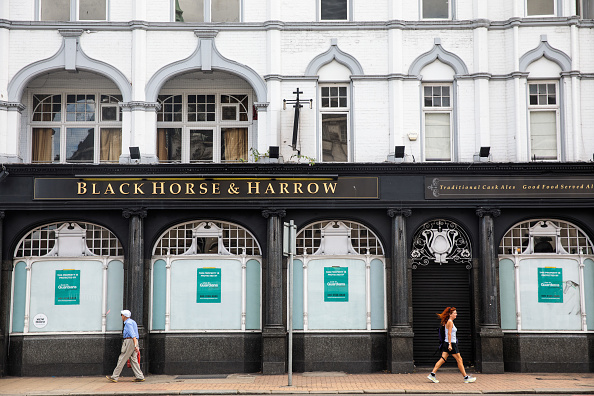
Annual growth in the UK economy fell to its slowest pace in nine years in the third quarter, data showed today, although the country avoided slipping into a recession.
Read more: UK avoids recession but annual growth hits slowest pace in a decade
“This slowdown follows not only Brexit uncertainty at home, but a weaker economic outlook globally,” said James Smith, research director at the Resolution Foundation think tank.
Here are four charts that explain the economy’s third quarter weakness – and what it means for UK GDP.
Underlying growth loses momentum
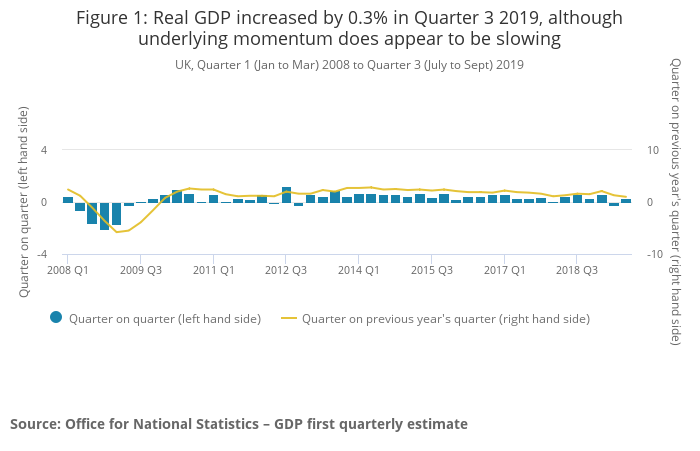
Ruth Gregory, senior UK economist at consultancy Capital Economics, said: “It’s pretty clear that underlying growth is soft and that the risks to our fourth quarter GDP forecast of 0.2 per cent quarter on quarter are to the downside.”
“The details of the data suggest the third quarter’s pace of growth won’t be sustained,” she said. “GDP rose by 0.3 per cent month on month in July, but fell by 0.2 per cent in August and 0.1 per cent in September.”
Services and construction sectors pick up
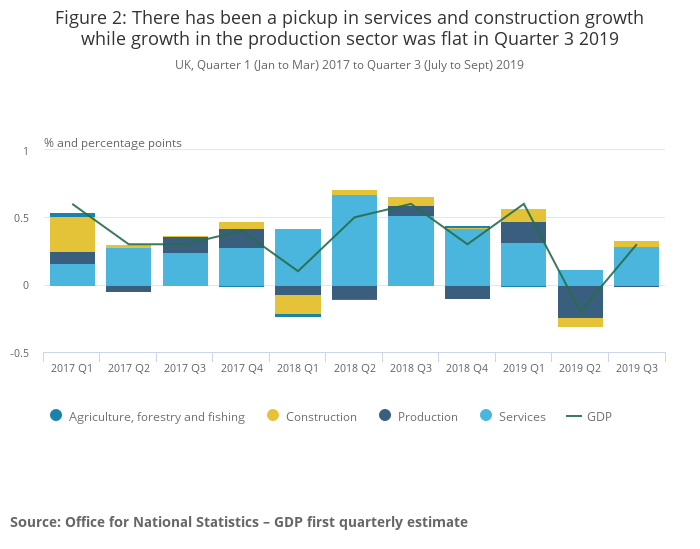
Howard Archer, chief economic adviser to the EY Item Club, said GDP growth last quarter was “led by services output growing 0.4 per cent quarter on quarter while there was also construction expansion of 0.6 per cent quarter on quarter”.
He added: “However, the manufacturing sector struggled with output only flat: overall industrial production was also only flat quarter-on-quarter.”
Read more: Bank of England: Brexit deal and trade wars will limit UK growth
Manufacturing malaise continues
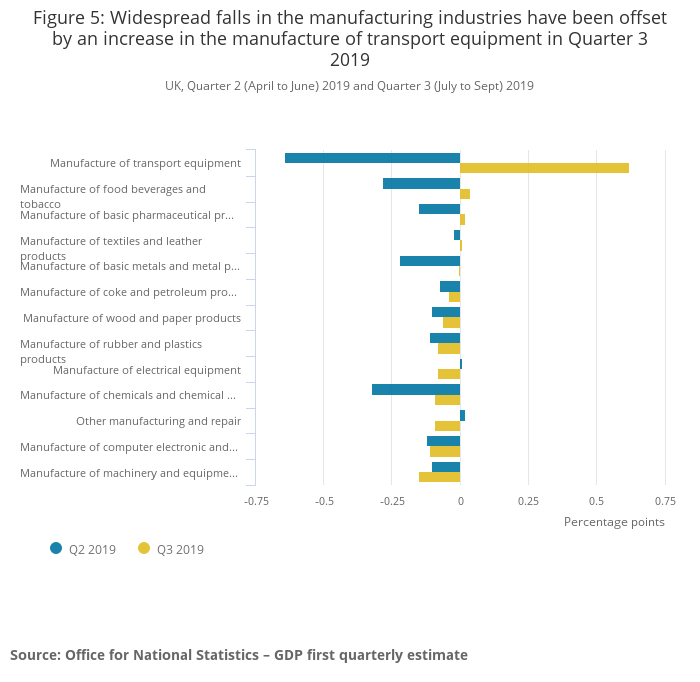
The weakness in the manufacturing sector continued in the third quarter. “The sector got less help than had been expected by car manufacturers bringing forward their summer shutdowns to April due to Brexit factors,” Archer said.
“Indeed, a number of car plants still shut down in August. Overall, industrial production was also only flat quarter on quarter in the third quarter.”
Business investment hit by Brexit delay
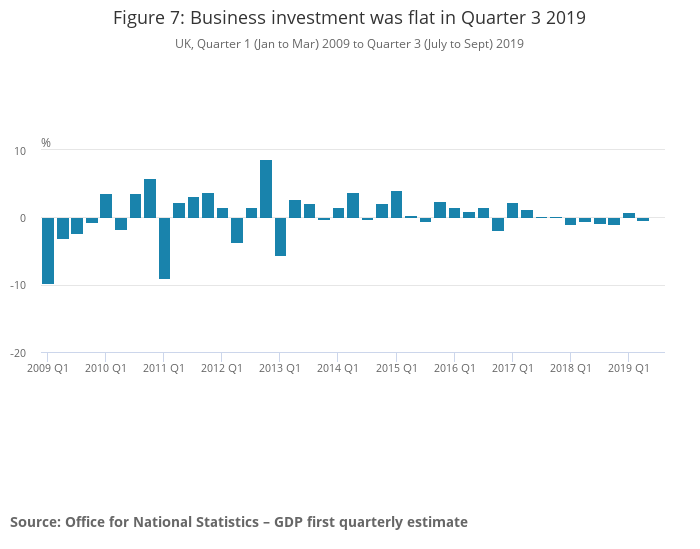
Business investment has fallen so far in 2019, and stayed flat in the third quarter. Yael Selfin, chief economist at KPMG, said this “shows the price of Brexit delay as businesses continue to postpone investment projects”.
Read more: Conservatives and Labour battle over election spending pledges
Suren Thiru, head of economics at the British Chambers of Commerce, said: “Despite the pick-up in growth, a slowing global economy has weakened firms’ cashflow, disrupted supply chains and stifled investment and is likely to squeeze economic activity in the fourth quarter and beyond.”
(Image credit: Getty)